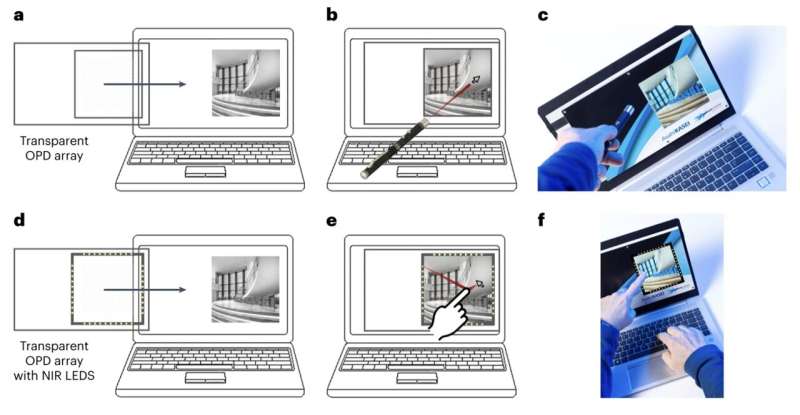- A new optical imager enables touchless operation, while gesture-based controls gain popularity using near-infrared cameras.
- Its transparent design and versatility offer the potential for broader application in the future.

Engineers aim to develop touchless interfaces as an alternative to the commonly used touch-operated devices like touchscreens, mice, remote controls, and keyboards. Touchless interfaces eliminate the need for physical contact, making them potentially more hygienic options for users. Previous research revealed that smartphones, in particular, tend to harbour more bacteria than the average toilet due to frequent touching and infrequent cleaning. Touchless interfaces offer a solution by enabling users to operate their devices without physical contact, potentially reducing the accumulation of bacteria on them.
Researchers at the Dutch Organization for Applied Scientific Research, Asahi Kasei Corporation and Eindhoven University of Technology have introduced a new optical imager with near-infrared sensitivity that could support touchless operation.
Several touchless user interfaces have emerged in recent years, enabling users to control devices through hand gestures. These interfaces commonly employ near-infrared cameras capable of accurately sensing environments even in low-light conditions. The optical transparency is achieved through a printed copper grid as a bottom transparent conductive electrode and an array of patterned organic photodetector subpixels. The team’s optical imager is visually transparent and can be effortlessly placed in front of common displays, significantly enhancing its field of view and positional accuracy. During initial tests, the imager displayed excellent performance, detecting movements and environmental changes with impressive precision.
The researchers have successfully integrated it into a standard laptop display, demonstrating its capability for gesture-based and penlight-based interactions with the laptop. We optimised the image sensor’s design by incorporating electro-optical modelling, resulting in a photo detective of around 1012 Jones at 850 nm and a remarkable visible-light transmittance of 70%. The researchers have demonstrated that when paired with a commercial display, the imager serves as an effective touchless user interface, supporting both penlight-controlled and gesture-controlled interactions.
The team’s new optical imager holds potential for future development and large-scale fabrication, facilitating touchless interactions with diverse devices. Moreover, its success may inspire the creation of other innovative devices supporting gesture-based and penlight-based interfaces.
Reference: Takeshi Kamijo et al, A touchless user interface based on a near-infrared-sensitive transparent optical imager, Nature Electronics (2023). DOI: 10.1038/s41928-023-00970-8






